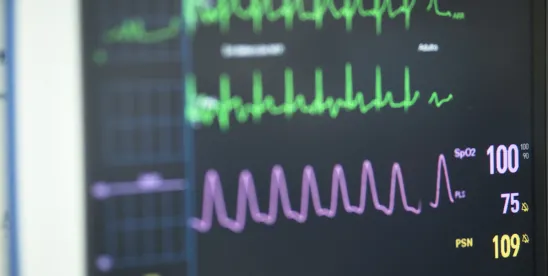The First District of the California Court of Appeal upheld the denial of Medtronic USA, Inc.’s (“Medtronic”) refund claim for California sales tax that it collected on sales of cardiac monitors. Medtronic USA, Inc. v. California Dep’t of Tax & Fee Admin., A169290 (Cal. Ct. App. Apr. 16, 2025).
The Facts: Medtronic manufactures two types of cardiac monitors, known as “RICMS,” which are implanted into a patient’s chest to monitor and collect information about the patient’s heart rhythm. Doctors then use the information to make decisions about and diagnose heart diseases of the patient.
For the periods at issue, Medtronic collected California sales tax on sales of its RICMS monitors. Subsequently, Medtronic requested a refund, maintaining that the RICMS devices met the definition of “medicines” that were statutorily exempt from sales tax.
The Law: California’s Revenue and Taxation Code Section 6369 exempts “medicines” from sales tax. The statute, in part, defines “medicines” as those furnished or prescribed for treatment of a human body by a licensed physician and “any substance or preparation intended for use by external or internal application to the human body in the diagnosis, cure, mitigation, treatment, or prevention of disease[.]”
The statute states that “medicines” specifically include “articles . . . permanently implanted in the human body to assist the functioning of any natural organ, artery, vein, or limb and which remain or dissolve in the body,” including bone screws, bone pins, and pacemakers. However, the statute specifically excludes from the definition of “medicines” “articles that are in the nature of splints, bandages, pads . . . instruments, apparatus, contrivances, appliances, devices, or other mechanical, electronic, optical, or physical equipment....”
The Decision: Medtronic offered multiple arguments to support that the RICMS devices are exempt from sales tax—all of which the Court rejected. First, Medtronic argued that the RICMS devices are specifically exempt because they are “articles [that are] permanently implanted in the human body to assist the functioning of” the heart. The Court agreed that the RICMS devices are permanently implanted but did not agree that they “assist the functioning” of the heart. The Court determined that unlike bone screws, bone pins, and pacemakers—which by themselves assist an organ to function—the RICMS devices “serve a purely informational function that requires subsequent human intervention to ‘assist the functioning’ of the heart.” Because the RICMS devices are diagnostic in nature, the Court held that they do not fall squarely within the relevant statutory provision that exempts permanently implanted articles that assist any natural organ in functioning.
The Court also rejected Medtronic’s argument that the RICMS devices are not specifically excluded from the definition of “medicines.” Medtronic argued that because the relevant statutory provision only excludes those articles—such as “splints, bandages, and pads”—that are applied externally to the patient, the RICMS devices (which are implanted in the patient’s body) are not in the same nature of those external applications and are not excluded from “medicines.” The Court rejected Medtronic’s external versus internal distinction, noting that the statute’s generic definition of “medicines” includes devices that are “intended for use by external or internal application to the human body[.]” The Court reasoned that if the generic definition of “medicines” includes devices that are applied both externally and internally, it could not read a different provision of the same statute to make such distinction and to apply only to external devices.
In rendering its decision, the Court strictly construed the plain language of the statute to ultimately affirm the trial court’s decision that the RICMS devices do not meet the definition of “medicines” exempting them from California sales tax. The Court recognized that while the function of the RICMS devices touches several concerns of the statute exempting “medicines” from tax, “those touches are too tenuous to establish the firm basis needed for an exemption.”
A takeaway here is just because the spirit of a statute seems to apply to a taxpayer, it does not necessarily mean the statute actually applies. And we can ask whether the spirit of a statute creates an ambiguity, as to its words, that requires further consideration. However, the plain language of a statute generally will prevail. Whether the Court came to the correct conclusion in analyzing the plain language here seems questionable.


 />i
/>i

